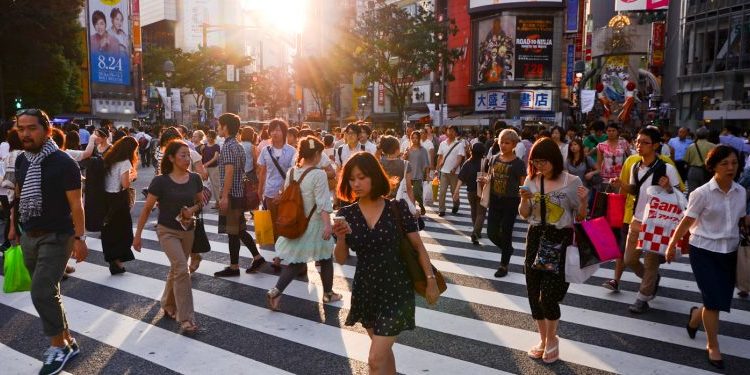Japon/Marzo de 2017/Fuente: The Pie News
RESUMEN: Estudiantes de cinco países pronto tendrán que cumplir con requisitos de aplicación más estrictos para las escuelas de idiomas en Japón, como parte de una campaña contra inmigrantes que trabajan ilegalmente con visas de estudiante. A partir de este mes, estudiantes de Sri Lanka, Nepal, China, Vietnam y Birmania que estudien en muchas de las escuelas de idiomas de Japón deberán enviar más pruebas de capacidad financiera como parte de su solicitud de visa. La oficina de inmigración japonesa ha instruido a las escuelas de idiomas que tenían 10 estudiantes de los cinco países o ser expulsados o abandonar el último año para implementar esta política. Esto suma alrededor de la mitad de las escuelas de idiomas del país.
Students from five countries will be soon faced with stricter application requirements for language schools in Japan, as part of a crackdown on immigrants working illegally on student visas.
Starting this month, students from Sri Lanka, Nepal, China, Vietnam and Burma studying at many of Japan’s language schools will be required to send over further proof of financial capability as part of their visa application.
The Japanese immigration bureau has instructed language schools that had 10 students from the five countries either be expelled or drop out in the last year to implement this policy. This totals around half of the country’s language schools.
The prospective students will have to show further financial capacity than before, in the form of deposit and withdrawal details.
Visa requirements for students from the five countries, plus Mongolia and Bangladesh, were already stricter than for other countries, said Munezai Yo, school administrative director at KAI Japanese Language School in Tokyo.
“The immigration office allows good schools to reduce the documents necessary to submit for the student visa application,” he told The PIE News.
“It’s based on the rate of crimes, absconders, etc. of the previous year.”
However, there has been criticisms of this policy, as the legislation doesn’t differentiate between students who have been expelled and those who have left for another reason.
“This announcement made a very big backlash because those [students] who left the school without any problems such as getting hired by Japanese companies were also included [in this quota],” added Yo.
The policy is being introduced in an attempt to curb breaches of visa conditions.
Students at language schools are allowed to work up to 28 hours a week, but officials say there have been numerous reports of students exceeding this.
While the impact of this policy is unknown, “the number of applications from these five countries will probably decrease,” said Yo.
“I can’t imagine how big the decrease will be, though.”
Evan Kirby, director of Genki Japanese and Cultural School – whose school won’t be affected as it doesn’t enrol students from the specified countries – said its effect on the sector should be limited.
“The new changes are mostly a refinement of these requirements, designed to make it harder for applicants to submit fraudulent applications,” he told The PIE News. “So they should have little to no impact on good schools and good applicants.”
In 2015, there were 56,317 international students studying in Japan’s language institutions. The five selected countries for this policy are all in the top 10 sending countries of students to Japan for language study.
China was the top sending country with 19,190 students, followed by Vietnam with 18,751 and Nepal with 7,559.
Sri Lanka accounted for 1,112 students, while Myanmar sent 1,103.
Overall in 2015, Japan welcomed 208,379 international students across all sectors. The country has set a target to welcome 300,000 international students, through Prime Minister Abe’s Global 30 initiative.
Fuente: https://thepienews.com/news/japan-visa-regulations-language-study-tightened/







 Users Today : 77
Users Today : 77 Total Users : 35403270
Total Users : 35403270 Views Today : 100
Views Today : 100 Total views : 3332539
Total views : 3332539